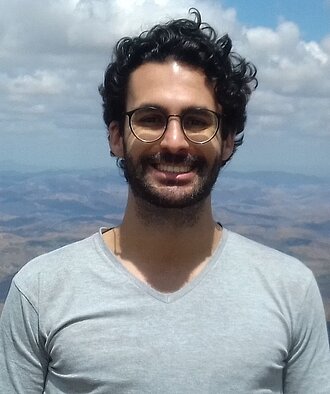Prof. Lucas Pacheco Campos

What excites you about adult learning and education?
As social beings, we are always learnng in order to adapt and improbe ourselves to answer to our realnecessities and to deal with the possibilities that appear during our lives. At the same time as we learn and act, we are also teaching among other socal beings, on purpose or not. Therefore, learning and teaching are permanent and social actions. As Paulo Freire would say, "nobody teaches anybody, nobody educates itself, human beings educate among themelves, mediated by the world". In freirian perspective, thats a good starting point to think about permanent education or lifelong learning. Considering this idea, I would lie to reflect and debate about the multiple (maybe infinite) ways we organize and promote educational processes - formal, informal, non-formal"
Lucas Campos has been a Public Administrator Specializing in Education at Fluminense Federal University (Brazil) since 2023 and served as an Assistant Professor at the Federal University of Juiz de Fora (Brazil) from 2018 to 2023. He holds a PhD in Public Policies and Human Development from Rio de Janeiro State University (Brazil), completed in partnership with the Institute of Education at the University of Lisbon (Portugal).
His main research interests are linked with politics, public administration and organizational studies. In this field, he has been reflecting on the relationships between the State, civil society and educational public policies.
CG6: National/regional adult education and lifelong learning policies
Co-Moderator: Prof. Paula Guimaraes
The analysis of national/regional adult education and lifelong learning policies can follow the models proposed by Lima and Guimarães (2011): democratic emancipatory model; modernisation and state control model; and human resources model. This analytical proposal includes several criteria allowing the identification of political orientation and priorities, organisational dimensions and conceptual elements and the interpretation of main subjects underlying adult education policies in recent decades. These models seek to embrace a wide range of adult education policies adopted in different countries and regions, many of these reflecting the impact of the European Union or other international governmental organisations. Built on a continuum, these analytical models are not exclusive but can show hybridisation, as a national or regional policy can present characteristics of different models. Some countries or regions favour policies based on upskilling of the workmanship through learning programmes, its adaptation to the labour market needs and the raise of productivity and economic competitiveness; others are more directed at developing education and training systems, favouring formal education and training, school certification and professional qualification of adults that are part of more formalised and ruled labour markets; others still are oriented towards democratic and emancipatory principles, fostering participation and equality of opportunities within liberal adult education and popular education programmes.
The expected learning outcomes of this comparative group is to gain insights on:
- different as well as similar national/regional adult education and lifelong learning policies in several countries or regions, and
- understanding such similarities and differences according to national/regional historical and contextual aspects.
ALVES, Natália, SCHMIDT-LAUFF, Sabine, DOUTOR, Catarina & CAMPOS, Lucas (2020). Contexts of Recognition of Prior Learning: a comparative study of RPL initiatives in Brazil, Portugal and Germany. Andragogical Studies, 2, 87-110.
CAMPOS, Lucas & NEPOMUCENO, Vera (2020). Reflexões sobre a (re)configuração do trabalho docente no Brasil e em Portugal na era neoliberal. In: CABRERA (Org.). História do Movimento Operário e Conflitos Sociais em Portugal. 687-702. Lisboa: Instituto de História Contemporânea.
CAMPOS, Lucas (2018). Políticas Públicas e as lutas por memória e justiça: contradições e limites. Revista Transversos, 12, 37-55.
CAMPOS, Lucas (2017). A construção da cidade olímpica carioca: o que ficará na memória? In: CALABRE, CABRAL & SIQUEIRA (Orgs.). Memória das olimpíadas no Brasil: diálogos e olhares. 2, 152-167. Rio de Janeiro: Fundação Casa de Rui Barbosa.
CAMPOS, Lucas, SANTOS, Laura & PRESTES, Gabriela (2015). A Administração Pública e o Projeto de Educação Brasileiro: o caso da cidade do Rio de Janeiro. Revista Brasileira de Administração Política, 8, 141-160.


